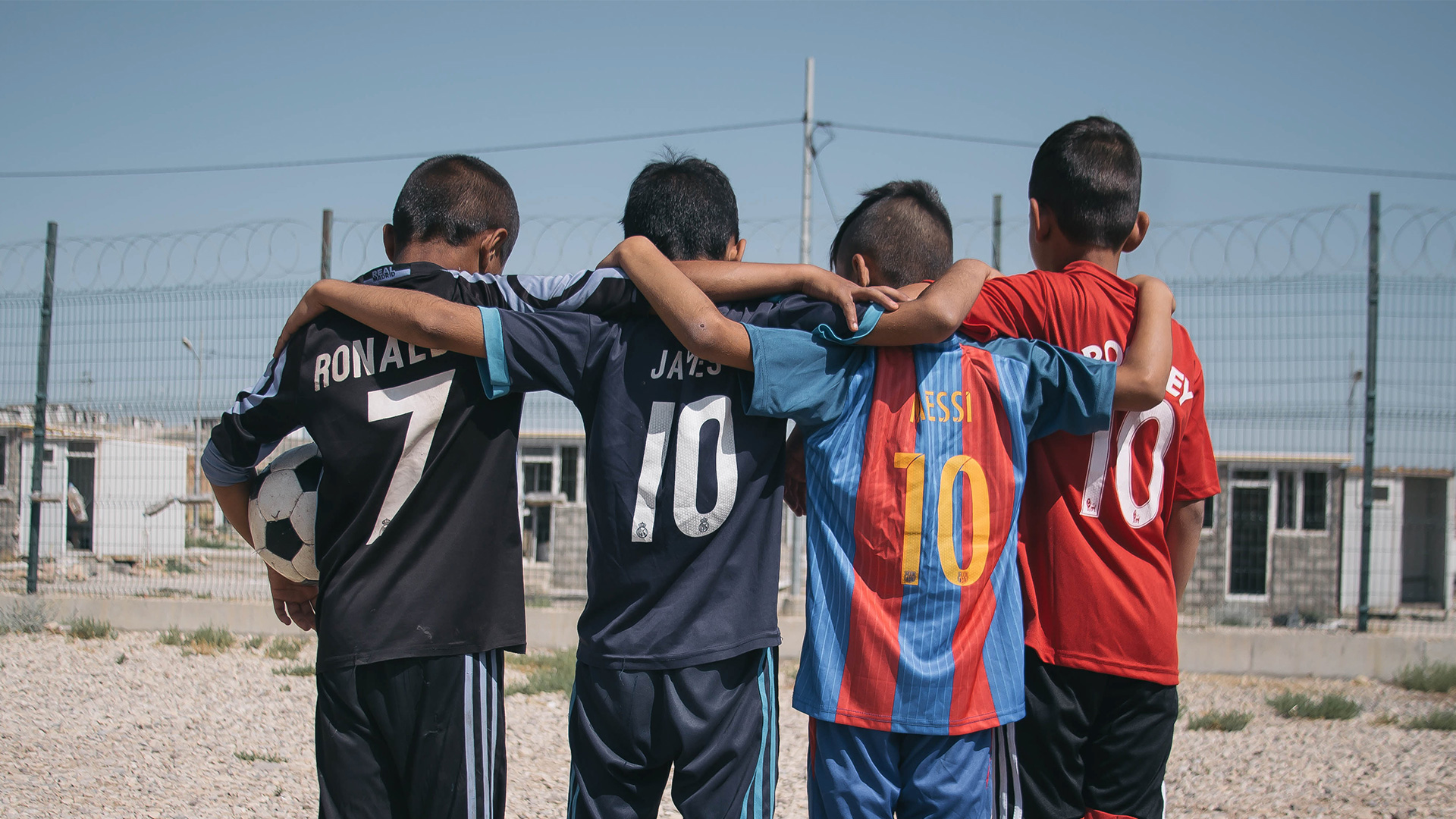
Red Hand Day 2022: National Response Required to Support Reintegration & Recovery of Former Child Soldiers
On the occasion of Red Hand Day, SEED Foundation calls for urgent action to address the ongoing recruitment of child soldiers in Iraq and provide institutionalized support to affected children.
Yezidi and other children exploited as child soldiers have endured grave violations and extreme trauma at a delicate and formative stage of their development.
Yet over the past 7 years since the ISIS conflict, we have not seen a coordinated national response. Instead, humanitarian and protection actors have tried to plug the gaps by providing support services to former child soldiers.
These children, some as young as 4 or 5 years old, were subjected to abduction, physical and psychological abuse, maiming, sexual violence, starvation, forced conversion, indoctrination, servitude, and coercion to participate in armed hostilities. As a result, many now suffer from significant physical injuries and poor mental health. But they also remain incredibly resilient.
Their needs may be unique, multi-layered, and long-term, but given a chance, these children have so much to give back to their communities.
With support from the United States Government, SEED Foundation currently provides comprehensive, long-term, specialized services – including case management, cash assistance, mental health services, legal services, and psychosocial support – to facilitate the protection, recovery, and reintegration of affected children and youth, along with their families and communities. SEED also offers training to government personnel to help them understand and effectively serve these sensitive cases, and advocates for stronger legislative protections and better resources for former child soldiers.
But while we are committed to serving these children, we cannot address structural and institutional shortcomings alone. Few NGOs have the resources or remit to deliver the type of long-term services required to facilitate full reintegration, and as we see donors and NGOs shift their attention from Duhok to Ninewa and other areas of origin, these gaps are being exacerbated, and huge numbers of affected children are being left behind.
Former ISIS child soldiers, some of whom are now adults, remain critically underserved. Many have never received any services or care since their return from captivity. Additionally, children continue to be used by other paramilitary and non-state armed groups across Iraq. This is not a problem of the past, but an issue of both the present and future.
Imagine returning home after exposure to horrific violence, only to find your loved ones missing or deceased. You have no identification documents, as they were stolen during captivity or lost during escape. The community you once called home now ostracizes you, subjecting you to stigma and sometimes committing violence against you. Living in abject poverty after losing years of education, you now have limited access to educational and livelihood opportunities. This is the life of many former child soldiers.
In order to meet these needs and achieve effective, sustainable impact, SEED Foundation calls for institutionalized support to affected children. It is the Iraqi government’s responsibility to ensure the social cohesion, security, and stability of this country by investing in the future of its children and youth, protecting them from harm, and meeting their needs. This requires the urgent passing and enforcement of legislation that explicitly prohibits the recruitment and use of children by non-state armed groups and brings Iraq into compliance with its obligations under the UN Convention on the Rights of the Child and the Optional Protocol on the Involvement of Children in Armed Conflict. Implementation of the Yezidi Survivors’ Law, which promises numerous benefits for Yezidi children who were held in captivity by ISIS, is also critical to the recovery of Yezidi former child soldiers.
Recovery is not a quick process. Each case requires long-term investment. To ensure effective reintegration in the immediate term, SEED Foundation calls also for increased funding and support from the international community to implement specialized, comprehensive programming to support former child soldiers over sustained periods.
We need comprehensive, long-term, survivor-centered, and rights-based services to help child survivors heal from their traumas and reclaim their right to a dignified childhood.
We need legislative and policy frameworks that explicitly prohibit the recruitment of children by non-state armed groups and support the recovery and reintegration of child survivors.
We need to work with affected communities to redirect blame and stigma equally from all child survivors to the perpetrators who prey on children’s vulnerabilities.
We need to build and strengthen community-based mechanisms to promote local ownership of rehabilitation and reintegration processes.
On Red Hand Day, SEED Foundation stands for the effective protection, recovery, and reintegration of affected children and youth, along with their families and communities.
